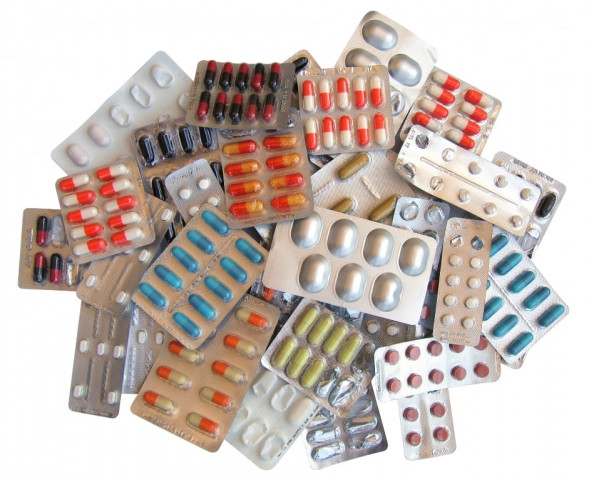As death toll rises at home: PIC drugs samples sent abroad for testing
Sales of Pakistani medicines plummet, causing severe damage to local industry.

As the authorities fumble to grasp what is going on, the Pakistani pharmaceutical industry is suffering severe financial losses, with claims that over two billion rupees has been lost so far.
Advocate General of Punjab Ashtar Ausaf, during a suo motu hearing of the Punjab Institute of Cardiology (PIC) free medicine case on Tuesday, told the Supreme Court that an interim report in the case will be submitted to the court on February 6.
The death toll, meanwhile, has reportedly reached 117.
Ausaf informed the court that samples of the drugs were sent out to Switzerland, Belgium and England for tests and they are awaiting results. He said that the move was necessary because there was no laboratory in Pakistan which could clearly determine the cause of the deaths by examining the samples.
On the other hand, a high-tech lab built by the Punjab government for Rs2.5 billion, with the latest equipment and highly qualified staff, has refused to conduct a chemical analysis of the body parts of three dead bodies, and referred task to an older lab, sources told The Express Tribune.
At the hearing, Ausaf added that, so far, nothing concrete has surfaced in the investigation and an autopsy of the victims’ bodies will be required to determine the actual cause of the deaths.
Heading a three-member bench, Justice Tassaduq Hussain Jillani asked the Lahore High Court inquiry tribunal to continue its probe into this issue, saying that the investigation report is inconclusive, as the people responsible for the deaths have not been specified in the report.
Justice Jillani also asked why the Federal Investigation Agency (FIA) arrested people reportedly involved in the case. The FIA officials present in the court informed him that, following the 18th Amendment, all health-related issues were transferred to the provincial governments and the FIA is authorised to arrest people who are involved in making the medicines.
Justice Jillani ordered the FIA to release the owners of pharmaceutical companies on personal bonds, which, it later emerged, the FIA did.
When Justice Saqib Nisar inquired about the steps taken by the Punjab government, Ausaf informed the court that the government had contacted the chief justice of the Lahore High Court to constitute a tribunal to investigate the case. The three-member bench also asked why Punjab Chief Minister Shahbaz Sharif had not taken any action regarding the issue.
People reluctant to use local drugs
Pakistan’s pharmaceutical manufacturing industry has suffered losses of above Rs2.24 billion in the 15 days since the PIC disaster came to the public attention, Pakistan Pharmaceutical Manufacturer’s Association (PPMA) officials claim.
Multi-national drug companies, on the other hand, are doing a roaring trade, pocketing over Rs150 million every day, according to reports.
Health department officials have said, time and again, that the problem was with the specific batch of these medicines and other local medicines were safe to use. However, the trade of local medicines has been considerably reduced.
“The total business of pharmaceutical companies through manufacturing is estimated at around Rs200 billion annually,” PPMA Chairman Dr Riaz Ahmad told The Express Tribune.
“Recently, I had to fire some officials of my marketing team in Sri Lanka. Doctors over there are not prescribing Pakistani medicines and Indian manufacturers are going to every doctor they know or don’t know to convince him to replace Pakistani drugs with Indian drugs, as Pakistani drugs are not reliable,” he added.
“The situation in Pakistan is even worse. It took us 20 years to take the share of locally manufactured drugs to 60per cent in total consumption of medicines, and we fear now it might take us the next 10 years to maintain this,” Dr Riaz said, adding that “the media needs to play an important role in this regard. We should convey to people that Pakistani medicines are safe to use. The problem was just with a specific batch of PIC. Otherwise, hundreds of thousands of patients have been using same medicines and they are very effective.”
Meanwhile, recent investigations into the case hinted that more than 100,000 adulterated pills might have been handed out to heart patients in Lahore. The medicine, called Alfagril, had a manufacturing fault because of which the pills developed brown spots on them and consequently resulted in a disease in the bone marrow.
(With additional reporting by Asad Kharal in Lahore and Azam Khan in Islamabad)
Published in The Express Tribune, February 1st, 2012.



















COMMENTS
Comments are moderated and generally will be posted if they are on-topic and not abusive.
For more information, please see our Comments FAQ